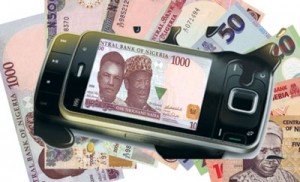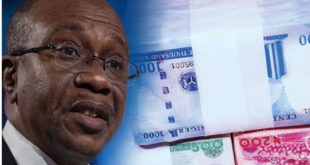
Nigeria and other African nations have lost $33bn (N6.5tn) in mobile money remittance from international and cross border transfer, the World Bank has said.
The bank stated this on Thursday in a report entitled ‘Africa’s Mobile Money’, as Nigeria, Africa’s largest remittance nation, prepares to host the 2015 RemitAfrica conference from November 4 to 5. The conference is expected to have more than 200 delegates and 65 industry stakeholders from more than 25 countries in attendance.

The World Bank report comes barely 10 days after the Central Bank of Nigeria said it was reviewing its tight regulatory policy on mobile money to make telecommunications companies play more roles in the adoption of the initiative, which aims at driving financial inclusion across the country.
The World Bank said in its report that Nigeria’s loss in mobile money remittance amounted to a projected slow at 0.9 per cent.

“Globally, it is expected to reach $586bn (N115.4tn) in 2015, though at a slower growth rate of 0.4 per cent due to economic conditions and is expected to accelerate again to reach an estimated $636bn (N125.3tn) in 2017.

“Africa, especially Nigeria, has made great strides in mobile technology adoption and penetration; however, despite the pervasive coverage of such mobile networks across Africa, technological innovation has yet to drive down costs in remittance markets,” the bank stated.
It added, “The barriers to cost-reduction, challenges and opportunities in the Nigerian remittance market, improving efficiency at the last mile, the role of non-bank financial institutions and the emergence of digital remittances such as mobile money are some of the subject matter areas to be considered at the conference being held in Lagos.
“The other subject matter areas are online transfers and crypto-currencies in lowering remittance cost for Africans.”
Under the CBN’s rule, the roles of telecoms companies have been reduced to mere transactions that passed through their ubiquitous network of infrastructure. But the World Bank said last week it had realised that the telcos had huge infrastructure spread across the country and could actually provide the enabling infrastructure for mobile money agents to work effectively.
Before now, the telcos had been calling for a collaborative approach with the banks in order to drive the growth of the country’s mobile money scheme.
The telcos had always stated that the formal market for international and cross border money transfer to Nigeria was still young and faced emerging markets’ challenges when compared to more established markets.
Meanwhile, the General Manager, Corporate Affairs, MTN Nigeria, Ms. Funmi Onajide, has once again said there is an urgent need for an all-inclusive framework that will allow strategic partnerships by all stakeholders, noting that this will ensure that Nigeria can deliver similar growth to that recorded by Kenya.
“This position is premised on the following key facts: African mobile operators have a wider reach than banks today in terms of distribution and, therefore, have the potential to onboard many more customers at the bottom of the pyramid than banks can through their branch networks,” she said.
Onajide also said, “As a function of this reach, but also because of this being an incremental service alongside core mobile services, the cost of acquisition for a mobile operator is far lower than for a bank.
“Mobile operators are not deposit-taking institutions, and for the overall good of the industry, it seems to us that more collaboration between the banks and the operators is needed.”
 MMS PLUS NG – Maritime, Aviation, Business, Oil and Gas News Online Newspaper with coverage in Maritime, Oil and Gas, Aviation, Power and Energy as well as Financial News
MMS PLUS NG – Maritime, Aviation, Business, Oil and Gas News Online Newspaper with coverage in Maritime, Oil and Gas, Aviation, Power and Energy as well as Financial News









